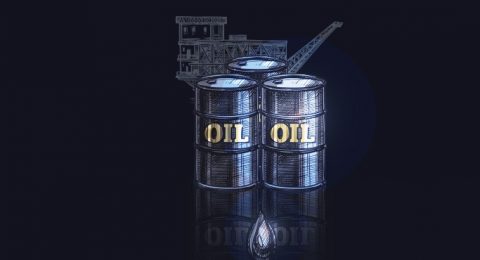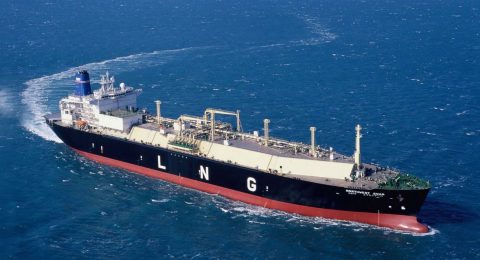Brent crude rose above $111 on Monday on worries over supply disruptions after Iran warned Gulf Arab neighbours of consequences if they raised oil output to replace Iranian barrels facing international sanctions.
The latest threat comes as leaders of top Asian buyers of Iranian oil — China, Japan and South Korea — tour alternative Middle East suppliers while the United States pressures nations to stop importing oil from the Islamic Republic. Yet gains were capped on demand concerns after Standard & Poor’s cut sovereign debt ratings of nine of the euro zone’s 17 countries.
Brent crude traded 96 cents higher at $111.40 a barrel by 0732 GMT, after rising as much as $111.45. The contract, which expires later in the day, posted a weekly loss of 2.36 percent. U.S. crude rose 54 cents to $99.24 a barrel, after settling down 2.82 percent for the week.
"The United States is trying to persuade buyers to stop importing oil from Iran, while each country is studying its options, its situation," said Ken Hasegawa, a derivatives manager with brokerage Newedge in Tokyo.
"This situation will continue with high tension."
Saudi Oil Minister Ali al-Naimi said on Saturday the world’s No. 1 oil exporter — the only one in OPEC with significant unused capacity — was ready and able to meet any increase in demand. He made no direct reference to sanctions on Iran.
Feeling increasingly isolated, Iran’s hardline Islamic clerical elite has lashed back by threatening to block the main Middle East oil shipping route.
The twin factors of supply and demand growth will keep oil trading in a tight range, with U.S. crude staying between $95 and $105 a barrel, Hasegawa said. Without any fresh triggers, oil faces a downtrend after the benchmark touched a high for this year above $103, he said.
Another reason supporting oil is concern over shipments from two key African exporters — Nigeria and Sudan.
Tens of thousands have taken to the streets in Nigeria protesting a sudden removal of a fuel subsidy. A meeting late on Sunday between President Goodluck Jonathan and the labour unions failed to reach a compromise, raising fears of a shutdown of the country’s oil industry.
Sudan said it has started confiscating some oil exports from South Sudan that it believes it is owed to meet unpaid transit fees.
EUROPEAN WOES
Oil bucked the broader trend across markets on Monday due to the latest warning from Iran. Asian shares, metals and gold all fell after the mass ratings cut further aggravated euro zone funding difficulties, threatening to derail progress made in solving the block’s debt crisis.
Standard & Poor’s cut ratings of countries, including top-notch France and Austria, and said it would decide shortly whether to downgrade the euro zone’s bailout fund.
"The downgrades were widely anticipated and already priced," said Ric Spooner, chief market analyst at CMC Markets. "However, they set a nervous early tone for this week’s markets as we approach more significant hurdles in the evolution of the euro zone crisis."
A bearish target at $108.91 per barrel has been lowered to $108.75 for Brent, while U.S. oil is expected to clear a support at $97.52 per barrel, and head towards a bearish target range of $93.88 to $94.74 thereafter, says Reuters market analyst Wang Tao.
Participants are awaiting data out of China due Tuesday to gauge the outlook for growth in the world’s second-largest oil consumer. According to a Reuters poll, China’s economy is on track to slow for a fourth successive quarter as global demand slackened.
"The GDP will be of particular interest as we will begin to get a clear picture of what price China has paid to cool inflation and what impact a slowdown in the Eurozone is having on the Chinese economy overall," said Ben Le Brun, market analyst at OptionsXpress.
Source: Reuters











